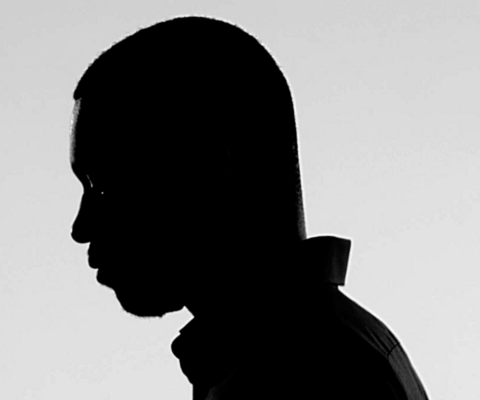Domestic violence is a difficult topic. It batters people in so many ways. We mostly focus on the victims, rarely the perpetrators. Sometimes, though, it might do us good to shift our points of view. Particularly when the perpetrator in question is. Only eighteen years old at the time of the crime.
Should a single series of bad decisions made by a child cast a shadow over an entire life?
We at Turning Leaf don’t think so.
Meet Tyler, who was once a teenage boy who made a series of mistakes that had drastic repercussions. This is his story.
* * * *
“I was bad,” says Tyler with a laugh when speaking about his childhood. He’s now 22-years-old but sounds older when you listen to him. He sounds like someone who’s seen a lot. Probably because he has.
Bad, in Tyler’s case, mostly meant getting in fights at school. He always dealt with anger by using his fists. Part of it was that no one ever showed him any other way. “Everyone hid things from me,” he says. “No one told me how to feel or act in certain situations. I always had to go with it, and anger was my main go-to.”
“My mama already had her hands full with my brother. She had too much to handle. So she shipped me off to live with my grandma,” he says.
When things got to be too much for his grandma, he was shipped back off to his mama. Then back to his grandma. Tyler’s granddaddy was his only rock. His best role-model. “He was like my dad,” he says. “He’d be the one to tell me what to do. Calm me. He taught me things like how to cut grass and work on cars. That’s when I was actually happy.” His granddaddy died, though, when Tyler was only thirteen.
His actual dad was available but not present. He was always working. “Any time I needed him I could call him,” he says. “But he wasn’t physically around. Yeah, I can hear you, but I can’t physically walk up to you and be like, ‘Can you help me with this?’”
Life went on with Tyler ping-ponging between his mama and his grandma, changing schools and starting over far too often. “I was always good at making friends,” he says. “But I didn’t like starting over. And with the back and forth, I started of feel like nobody wanted me. They were always pushing me off on someone else.”
When Tyler reached high school, his dad came and brought the rebellious boy to live with him. His dad set a better example. “In him, I could see for my own eyes how a man is supposed to carry himself,” he says. Change, though, is difficult, and by then, Tyler was already set in his ways. Fighting, making his own path. Doing what he needed to do to get by, including getting into the street lifestyle.
“My parents were always telling me to work hard,” he says. “But then I see my cousins selling drugs. They were driving nice cars and I think, I want that.” He started selling drugs at 18. He liked the ease of it, the way he didn’t have to work for his money. Sometimes he’d get a job, mainly to make his parents happy, but he’d only keep it for a week or two, get a paycheck, and then he’d quit. A ticket from the police for possession of marijuana wasn’t anywhere near enough to make him change.
And in the end, anyway, it wasn’t drugs that put Tyler in prison. It was his old go-to: anger. Violence.
A huge part of it was the stress of becoming a father. Tyler’s girlfriend got pregnant. Any parent knows the feelings surrounding having a baby: the intense joy, but also the fear, the abject terror, of suddenly being responsible for a whole new life. “When he was born,” says Tyler. “I can’t even describe it. The first time I held him…it was a good feeling.”
Tyler tried to turn things around for his new little man. He stopped selling drugs and got a job. “I told myself I didn’t need to be doing this when I have someone to take care of.” The changes only lasted a month or two, and the teenage passions of Tyler and the baby’s mother buckled under the strain.
Then, an argument with his own mama in the front yard got loud. A neighbor came out to intervene. “I took my anger out on him,” says Tyler. He spent a week in jail before bonding out, but after that, he says, “the charges just built up on me.”
The baby’s mother put a restraining order on Tyler after he got out of jail. She was afraid for her safety and that of her son. “It messed with my head,” he says. “How can I see my son? He’s right down the street and I can’t see him. I pass the neighborhood and I can’t see him.”
And this is the part where I remind you: Tyler was only 18 years old. A child with a child of his own.
He resorted, again, to his old friends: anger. Violence.
“It was never physical,” he says. “I never put my hands on a female.” But the violence, the anger, came out through threatening phone calls. Voicemails. Text messages. He wanted to see his son, and the baby’s mother was standing in his way. He did what he thought he had to do.
Of course, we know: it wasn’t the right thing to do. But Tyler couldn’t see any other way. He wound up with a charge for criminal domestic violence and was sentenced to three years in prison. In the end, it was a good thing. “It was good to get time away from a lot of stuff,” he says. “I could sit back and reflect on things.”
That’s not to say it was easy, though. His son was only six months old when he went in. Tyler missed all the firsts: first Christmas, first birthday, first steps, first words. There were no visits. He wasn’t even allowed to send letters. The one he tried to send got him in trouble, so he resorted to writing letters, reading them, then throwing them away.
Today, Tyler is a young adult with a felony on his record. He’s come to Turning Leaf to learn a different way. A better way. “It’s the life skills I need,” he says. “Growing up, I didn’t learn a lot of those skills. My parents didn’t talk about things to me. I never saw arguments. I had no idea how to deal with stuff. So I used to shut down, and let that shit eat me up inside. Now I’m learning how to communicate.” In short: he’s growing up and learning how to deal without resorting to his old playbook.
His main goal now is to work on gaining visitation with his son. “I want to have a good relationship with him,” he says. “I want to let him know he has somebody who cares about him. I want to teach him the stuff I had to learn on my own so he’ll know how to deal with it. So he won’t be running around lost.”
* * * *
So he won’t be running around lost. Let that sink in.
Tyler was lost.
So, too, I’m sure, are many of the people in the world who try to solve problems with violence. So often, they simply need to be found.
Tyler, we’re so glad you came to Turning Leaf to find yourself and your voice. We are here with you and for you and we know you’ll succeed in making the most of your second chance.
Captured by Leah Rhyne

